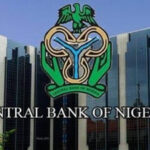Deposit Money Banks (DMBs), other financial institutions and companies can now share customers’ data, in a bid to create innovative products, according to a new circular released by the Central Bank of Nigeria (CBN) on Wednesday, 8 March 2023.
According to the central bank, data sharing is part of an effort to promote Open Banking in Nigeria. It will give stakeholders access to information that will better their service to customers.
Join our WhatsApp ChannelThe Open Banking is based on the Application Programming Interface (API), which can be accessed by two categories of firms; API Providers (AP) and API customers (AC).
API Providers are companies that provide the data and API Customers are buyers of the information, but the central bank said the data shared among financial institutions and third parties will be consented to by their customers.
In the regulatory framework for Open Banking, CBN said: “Customers shall always have control over their data and be able to access, manage or withdraw their consent at any point in time; and Participants shall develop and agree on a consent management mechanism which includes a clear set of policies and procedures.”
“The Regulatory Framework for Open Banking in Nigeria established principles for data sharing across the banking and payments system to promote innovations and broaden the range of financial products and services available to bank customers.
“As a result, open banking recognises the ownership and control of data by customers of financial and non-financial services, and their right to grant authorisations to service providers for the purpose of accessing innovative financial products and services.
“Open Banking applicability includes Agency Banking, Financial Inclusion, Know your customer (KYC), credit scoring/rating etc. These Guidelines are anticipated to drive competition and improve accessibility to financial and payments services,” the financial regulator explained.
Meanwhile, the Open Banking system also puts owners of the data at risk due to the possibility of hacking or breach of privacy.
“The basic risks in open banking include cybersecurity, data privacy and integrity, contract management, product management, money laundering, regulatory and compliance.
“At the minimum, participants shall address all identified risks, by developing and implementing effective risk management frameworks, policies and procedures for open banking, approved by the Board of Directors, as well as institute a culture of sound corporate governance,” the CBN wrote.


















Follow Us